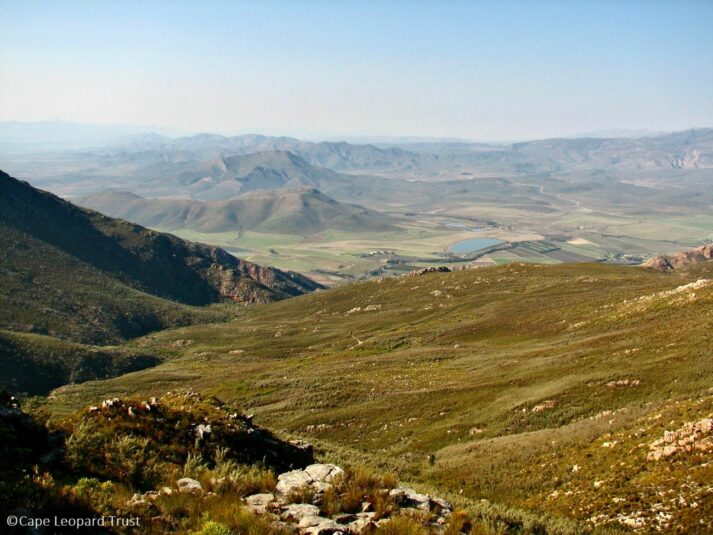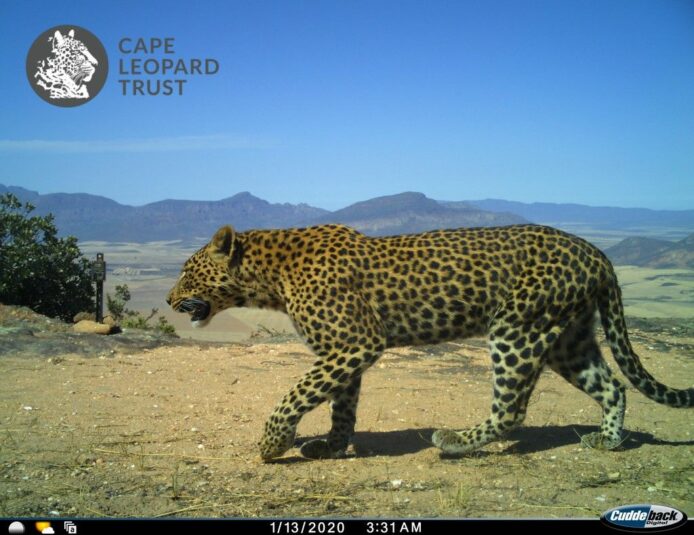Developing a mobile enclosure to promote human-predator coexistence
Leopards are the last free-roaming large predator in the Western Cape, South Africa. These wide-ranging predators require huge tracts of suitable habitat, but a large proportion of the potential habitat available is adjacent to agricultural land – in many cases livestock farms. Farmers do experience livestock losses due to leopards, and in cases where they do not have access to affordable, effective, and non-lethal methods to prevent leopard predation, some farmers may resort to killing leopards as a way of protecting their interests. One of the best methods to reduce conflict is to secure livestock in a kraal (a protective enclosure) overnight, but mobile predator-proof kraals currently on the market are expensive, cumbersome to move and unsuitable for rugged terrain, so livestock is often left vulnerable to predation.
Through discussions with farmers in leopard conflict areas, the Cape Leopard Trust identified the need to design a kraal that is mobile, predator-proof, robust, affordable, and easy to use. We aim to host a public competition to find such a design. Prototypes of the winning kraal design will be constructed with input from the designer, and placed on farms to test efficacy and useability. Once trialled and proven to be effective, the design will be made freely available to farmers, agricultural companies, and other conservation organisations to encourage widespread adoption.
Ultimately, an improved and more affordable kraal design will promote human-predator coexistence, enabling many livestock owners to farm alongside predators with a more positive mindset. The kraal will improve farmers’ resilience and enhance productivity, as well as demonstrating that it is possible and even advantageous to farm with nature. Although our aim focuses on the continual survival of leopards, this solution ultimately advances multi-species conservation. Reduced livestock losses will protect predators, biodiversity, and critical ecosystems. An investment in leopards, an umbrella species, provides protection and benefit for other vulnerable fauna and flora.
-The Cape Leopard Trust (CLT; Est 2004) is an environmental NGO engaged in innovative research, conservation and education projects established to facilitate and promote the conservation of biological diversity. The CLT’s vision is to ensure the continued survival of leopard populations, help secure their habitat and prey base, and promote their coexistence with people.



